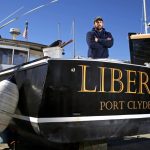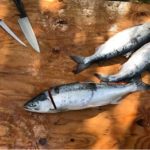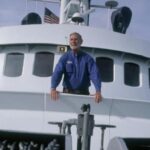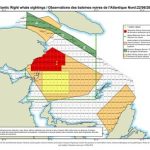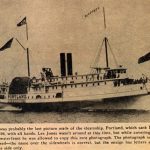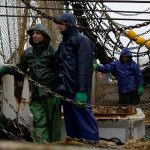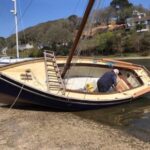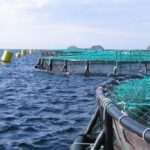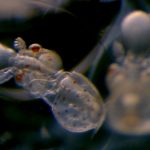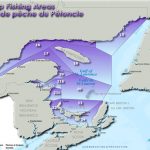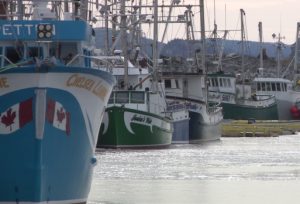Monthly Archives: January 2013
The Gulf of Mexico could be the next factory farming zone! Tell the Gulf Council to “Can the Plan”
Ocean fish farming is dirty business: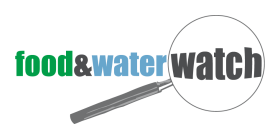
Fish waste and chemicals can flush straight into the open ocean. Fish can escape from farms and they can alter wild fish behavior, compete with wild fish and spread disease. Farmed fish usually eat food containing small wild fish. These small fish are an important food source for marine wildlife. An increase in factory fish farms can mean less food for marine wildlife. When fishmeal or oil isn’t used in fish feed, genetically modified soy is often substituted. Soy does not belong in the marine environment, and it can have various negative impacts. Tell the Council you want a fair process now. Read more Simply fill out the form here
Oceana hails catch monitoring lawsuit victory
Conservation organization Oceana has announced a “major litigation victory” that it says will require stronger accountability through catch monitoring for the New England groundfish fishery. The agreement reached on Jan. 30, with the federal government will require “accurate monitoring to enforce scientifically-based catch limits and help preserve healthy and sustainable ocean ecosystems,” according to Oceana. Read more
THE ABSURDITY OF FISHERIES MANAGEMENT – PART 1 – WHEN NOAA MEANS NO
Recreational Fishing Alliance. As all saltwater fishermen are aware, President Bush signed the Magnuson-Stevens Fishery Conservation and Management Reauthorization Act of 2006 on January 12, 2007. In the six years since this law governing management of our coastal fishing industry- recreational and commercial alike – was reenacted, the Recreational Fishing Alliance (RFA) has pointed out the complete absurdity of fisheries management stemming from both the rigid and inflexible requirements spelled out in this law, as well as the gross neglect by our federal government to meet Congress’s deadlines and requirements. Read more
Coast Guard Assists F/V Masonic, Medivac’s crewman from F/V North Sea
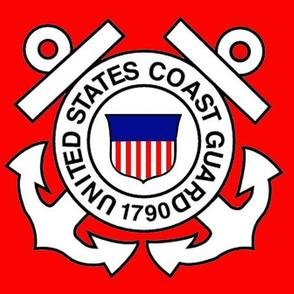 Coast Guard 17th District watchstanders received a relayed request for assistance from Med Call Assist at 1:57 p.m. reporting that a 23-year-old crewmember aboard the North Sea was suffering from seizure-like symptoms and required medical assistance. Read more
Coast Guard 17th District watchstanders received a relayed request for assistance from Med Call Assist at 1:57 p.m. reporting that a 23-year-old crewmember aboard the North Sea was suffering from seizure-like symptoms and required medical assistance. Read more
JUNEAU, Alaska — Coast Guard crews and a good Samaritan assisted the crew of a 70-foot fishing vessel taking on water approximately five miles west of Fairweather Ground Wednesday Read more
Drastic groundfishing cuts approved by fishery management agency
UPDATE… 6:27 PM Wed. New England Fisheries Management Council recommends cutting Cod fishing limits in the Gulf of Maine by 77% and in George’s Bank by 55%. This is critical, fisherman say, because catching cod leads to catching other fish like haddock. They say the cuts are devastating. Watch video
Political games are devastating sustainable commercial fishing
Not a single commercial fisherman nor any representative from the food industry sits on the nine member Fish and Wildlife Commission to speak for an industry which accounts for 15,000 jobs in the Seattle area alone, according to a Port of Seattle study. No one speaks for the fish consumers which my family fishing business supplies at King County farmer’s markets, nor for the majority of state citizens who buy their local salmon at the fish counter. While they are excluded, the trophy-hunting Safari Club, the sport gear sales industry, fish farm advocates and other game-oriented groups all find seats at the fish and wildlife table, alongside nominal conservationists. Read more
Officials Back Deep Cuts in Atlantic Cod Harvest to Save Industry –
New York Times “I do not deny the costs that are going to be paid by fishermen, families, communities. They are real. They will hurt.” The problem, he said, is not government inflexibility, as fishermen have suggested, but the lack of fish. “It’s midnig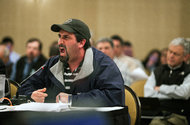 ht and getting darker when it comes to how many cod there are,” he said. “There isn’t enough cod for people to make a decent living.” But opponents said the limits would not help save the industry.
ht and getting darker when it comes to how many cod there are,” he said. “There isn’t enough cod for people to make a decent living.” But opponents said the limits would not help save the industry.
“Right now what we’ve got is a plan that guarantees the fishermen’s extinction and does nothing to ameliorate it,” David Goethel, a New Hampshire-based fisherman and biologist, said as he cast his vote against the plan.
Fishermen were furious with the result.“I’m leaving here in a coffin,” said Carlos Rafael, who owns a commercial fishing business in New Bedford, Mass. “With all these cuts, I won’t be able to keep half of my fleet working. I’ll have to cut down from 20 groundfish boats to maybe 5or 6.” Read more
Keep the Fishing Ban in New England – CALLUM ROBERTS, YORK, England
![]() Where were the regulators through all of this? Always one step behind and perennially ineffective. Federal law delegated to the New England Fishery Management Council authority to manage the fishery from 3 miles to 200 miles off the coast, but the council didn’t see its job as speaking up for fish. This body was dominated by fishing interests, so when faced with a choice of fishing now or cutting back the catch to assure the fishery’s future, the council’s decisions often favored the short term. With such decisions, collapse of the fishery was inevitable. When it happened in the late 1980s, it was brutal and swift. By the early 1990s, all agreed that something had to be done. The council reinvented its approach to fishery management.Read more
Where were the regulators through all of this? Always one step behind and perennially ineffective. Federal law delegated to the New England Fishery Management Council authority to manage the fishery from 3 miles to 200 miles off the coast, but the council didn’t see its job as speaking up for fish. This body was dominated by fishing interests, so when faced with a choice of fishing now or cutting back the catch to assure the fishery’s future, the council’s decisions often favored the short term. With such decisions, collapse of the fishery was inevitable. When it happened in the late 1980s, it was brutal and swift. By the early 1990s, all agreed that something had to be done. The council reinvented its approach to fishery management.Read more
Coast Guard, NOAA seize local boat’s catch
BOSTON — The U.S. Coast Guard and NOAA officials have issued a notice of violation for what they called a “significant fisheries infraction” after a Coast Guard crew boarded a Gloucester-based vessel Tuesday some 100 miles east of Cape Ann. Read more
New England panel approves 2013 cod limits with 77 percent cut
The New England Fishery Management Council voted Wednesday night to cut the Gulf of Maine cod fishery limits by 77 percent for the 2013 fishing cycle and to extend similar cuts for the 2014 and 2015, dealing a dire blow to the region’s fishing industry. Why this should be so became a sub-theme of the day, with the phrase “regime shift” used frequently to suggest a braid of environmental and ecological alterations —including millions of lobster traps that take an unknown quantity of cod as by-catch, large volumes of herring which eat cod eggs and seals which feed on cod, as well as the various forms of global warming that emanate from and absorb into the seas. Read more
SAVING SEAFOOD ANALYSIS: Making Sense of Reference Points, Proxies, and F40%
The scientific basis for the current “reference points” used for New England groundfish management has recently been questioned by respected scientists, industry members, and elected officials. The largest organization representing groundfishermen in New England, and the mayor of the nation’s most profitable seaport, have asked the New England Fishery Management Council to reconsider the calculation and use of the current reference points.
groundfishermen in New England, and the mayor of the nation’s most profitable seaport, have asked the New England Fishery Management Council to reconsider the calculation and use of the current reference points.
Because this issue is highly technical and development of the current reference points are the result of a unique history, Saving Seafood has undertaken this analysis to shed some light on the background behind these requests for reconsideration. Read the analysis
Alaska Department of Fish and Game Releases New Chinook Salmon Stock Assessment
Chinook Salmon Research Plan and 2012 Symposium Draft Research Plan. Here
Our View: Groundfishing limits are a disaster for this region
 What is happening to the Northeast’s groundfishing industry is a natural disaster, just as devastating as a drought or a wildfire. But the federal government is just making it worse. Fishermen have been regulated under several regimes designed to rebuild the threatened stocks of cod and other species, while still allowing enough fishing for some fishermen to survive financially. Read more
What is happening to the Northeast’s groundfishing industry is a natural disaster, just as devastating as a drought or a wildfire. But the federal government is just making it worse. Fishermen have been regulated under several regimes designed to rebuild the threatened stocks of cod and other species, while still allowing enough fishing for some fishermen to survive financially. Read more
Groundfishing meeting could make or break industry – WMTW video here
American Alliance of Fishermen and their Communities (AAFC) – a formal FOIA Request
American Alliance of Fishermen and their Communities (AAFC)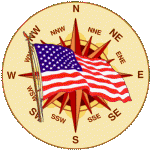
“PRESERVING OUR NATION’S FISHERIES FOR ALL AMERICA” P.O. Box 5490 Wakefield R.I. 02880 401-837-6932 tinajaafc@gmail.com
January 29, 2013
The Honorable Dr. Jane Lubchenco Under Secretary of Commerce Administrator of NOAA 1401 Constitution Ave NW Room 5128 Washington DC 20230
Dear Dr. Lubchenco, Read more
Editorial: NOAA regional chief cannot ignore lawmakers’ call . Will he? Listen via webinar at todays NEFMC Meeting
First-year NOAA regional administrator John Bullard, who heads the regulation of fisheries from Maine through North Carolina from his perch in the National Oceanic and Atmospheric Administration building in Gloucester’s Blackburn Industrial Park, says he doesn’t believe the Magnuson-Stevens Act allows the flexibility to extend the current Gulf of Maine cod limits, which cut 22 percent from fishermen’s allowable catch a year ago, for another year. Read more
REMINDER Attend the NEFMC Council Meeting – via WEBINAR Wednesday,January 30, 2013. 9:00 a.m. Register to Listen Live Register to Listen Live Register to Listen Live Register to Listen Live
Fishing was his life…and his death. Fisherman Peter Stilwell, Pompano Beach, Fla.
 After a painful recovery from a bacterial infection that nearly killed him, Peter Stilwell told his family in Pompano Beach he was finally ready to go back to sea and his first love: the deep-water hunt for swordfish.”He wanted to get his life back,” said Martin Stilwell, who dropped his 55-year-old brother at the train station last week so he could join the crew of a commercial longlining boat at the Outer Banks in North Carolina. “He had fishing in his blood.”But on his first day back at work in what is ranked as the nation’s most-dangerous profession, Stilwell disappeared without a life jacket from the deck of the 57-foot Fine Tuna. Read more
After a painful recovery from a bacterial infection that nearly killed him, Peter Stilwell told his family in Pompano Beach he was finally ready to go back to sea and his first love: the deep-water hunt for swordfish.”He wanted to get his life back,” said Martin Stilwell, who dropped his 55-year-old brother at the train station last week so he could join the crew of a commercial longlining boat at the Outer Banks in North Carolina. “He had fishing in his blood.”But on his first day back at work in what is ranked as the nation’s most-dangerous profession, Stilwell disappeared without a life jacket from the deck of the 57-foot Fine Tuna. Read more
UPDATED – Ex-AG Harshbarger report clears fisheries group, but raises questions By Richard Gaines
A 48-page report released today by a former state attorney general has found allegations of wrongdoing by Vito Giacalone in his role heading the Gloucester Fishing Community Preservation Fund “without merit” and with no “credible 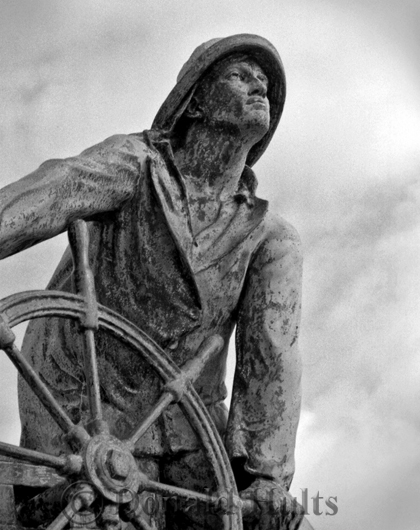 basis.”,,,,The investigation and report, filled with compliments and praise for Giacalone, in one place noting that his many admirers consider him a “genius” of foresight, was commissioned and financed by the preservation fund, for which Giacalone serves as president and executive director. Read more Todays Update January 30, 2013 Read more
basis.”,,,,The investigation and report, filled with compliments and praise for Giacalone, in one place noting that his many admirers consider him a “genius” of foresight, was commissioned and financed by the preservation fund, for which Giacalone serves as president and executive director. Read more Todays Update January 30, 2013 Read more
Virginia Delegates pass bill to reduce menhaden harvest; 25 jobs at risk
Delegates voted unanimously Monday to reduce the commercial catch of Atlantic menhaden in Virginia waters by 20 percent, mirroring similar action last week in the Senate. Read more
Seasonal Prohibition on Fishing Grouper in Caribbean Federal Waters
US – NOAA Fisheries reminds the public there is a seasonal prohibition on fishing for or possession of red, black, tiger, yellowfin, and  in Caribbean federal waters from 12:01 a.m., local time, 1 February through 30 April, 2013. This prohibition on possession does not apply to such grouper harvested and landed on shore prior to the closure. Read more
in Caribbean federal waters from 12:01 a.m., local time, 1 February through 30 April, 2013. This prohibition on possession does not apply to such grouper harvested and landed on shore prior to the closure. Read more
Governor Lolo Matalasi Moliga wants fishing in research zone of National Marine Sanctuary of American Samoa.
 Governor Lolo Matalasi Moliga has asked the US Department of Commerce to allow bottom fishing in one of the two areas of Aunu’u that is now part of the National Marine Sanctuary of American Samoa. His request was made in a letter to Acting Secretary of Commerce Rebecca Blank. Specifically, Lolo is requesting changes to the two areas of Aunu’u that’s now part of the sanctuary. Read more
Governor Lolo Matalasi Moliga has asked the US Department of Commerce to allow bottom fishing in one of the two areas of Aunu’u that is now part of the National Marine Sanctuary of American Samoa. His request was made in a letter to Acting Secretary of Commerce Rebecca Blank. Specifically, Lolo is requesting changes to the two areas of Aunu’u that’s now part of the sanctuary. Read more
A desperate try to restock the Potomac’s sturgeon
 Believe it or not, there’s a Chesapeake Bay fish in even worse shape than the recovering striped bass, the troubled blue crab and even the imperiled bay oyster. The Atlantic sturgeon, pushed to the brink of extinction by overfishing and development, is little more than a memory in the Potomac River, ready for a spot in a museum. Read more, and treat yourself to the Wapo comments.
Believe it or not, there’s a Chesapeake Bay fish in even worse shape than the recovering striped bass, the troubled blue crab and even the imperiled bay oyster. The Atlantic sturgeon, pushed to the brink of extinction by overfishing and development, is little more than a memory in the Potomac River, ready for a spot in a museum. Read more, and treat yourself to the Wapo comments.
Crippling ‘reality’ arrives for New England fishermen
The few fishermen who still ply New England’s waters for cod, haddock and other groundfish are bracing for a double dose of bad news this week…..as expected, slash already reduced catch limits by another 70 percent to 80 percent to protect fish populations that scientists now say are much smaller than previously thought….”If the collective goal is to rebuild stocks … then if we don’t start looking at the causes of the problem, we are not going to find a solution.”…..”I don’t know why we should believe the science when three years ago they said the stocks were rebuilding,” Read more
A Must Read – Common-sense fisheries oversight needed By Daniel Goethel. “Extinction”
As the debate looms over whether Gulf of Maine cod catch limits for 2013 and beyond should be cut by 90 percent or a mere 80 percent, I found myself drawn to a piece of writing that I submitted as part of my college applicatio n in 2002. Dramatically enough, it was titled “Extinction” and recapped my naive first 18 years of life as part of a small-boat New England fishing family. The essay started ominously enough by stating that “every year, New England’s fleet shrinks and approaches extinction.” Typically enough, for a pro-fisherman piece, it bashed government science for using incorrect data and ignoring fishermen’s observations, while bemoaning the days of 30-pound trip limits. However, it ended on a cautiously optimistic note highlighting the then-recent increase in cod trip limits to 400 pounds a day.
n in 2002. Dramatically enough, it was titled “Extinction” and recapped my naive first 18 years of life as part of a small-boat New England fishing family. The essay started ominously enough by stating that “every year, New England’s fleet shrinks and approaches extinction.” Typically enough, for a pro-fisherman piece, it bashed government science for using incorrect data and ignoring fishermen’s observations, while bemoaning the days of 30-pound trip limits. However, it ended on a cautiously optimistic note highlighting the then-recent increase in cod trip limits to 400 pounds a day.
Looking back at this work, written more than a decade ago, I am dumbfounded to see that New England groundfish management has once again regressed. Today, I am deep into my pursuit of a PhD in fisheries stock assessment,,,,,,,,Read the rest
Fish Tales Of A Gloucester Fisherman by his daughter, Virginia (Frontiero) McKinnon
Hi Joey, I recently joined the Gloucester Writers Group. On Jan. 17th I attended my first meeting, The Inaugural Meeting of Fish Tales, Live Story Telling. I would like to share my story and pictures with your readers. Virginia (Frontiero) McKinnon. Photos. Read more
SHAHEEN, AYOTTE URGE COMMERCE DEPARTMENT TO RECONSIDER FISHERY DECISION
 January 28, 2013 (WASHINGTON) – U.S. Senators Jeanne Shaheen (D-NH) and Kelly Ayotte (R-NH) are calling on the Department of Commerce to reconsider its decision to require drastic quota reductions designed to end overfishing of Gulf of Maine cod and haddock in 2013. In a joint letter, the New Hampshire Senators called on the Department of Commerce to reconsider the National Marine Fisheries Service (NMFS) decision which threatens the survival of New Hampshire’s fishing industry and the economic well-being of its coastal communities. Read more
January 28, 2013 (WASHINGTON) – U.S. Senators Jeanne Shaheen (D-NH) and Kelly Ayotte (R-NH) are calling on the Department of Commerce to reconsider its decision to require drastic quota reductions designed to end overfishing of Gulf of Maine cod and haddock in 2013. In a joint letter, the New Hampshire Senators called on the Department of Commerce to reconsider the National Marine Fisheries Service (NMFS) decision which threatens the survival of New Hampshire’s fishing industry and the economic well-being of its coastal communities. Read more
Regulation prohibits fishing for first-pulse kings on lower Yukon River
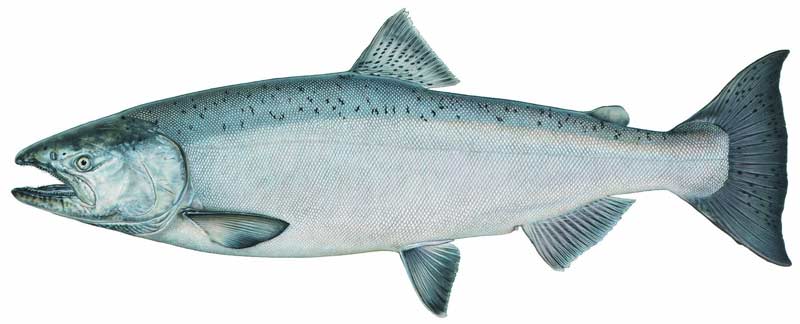 FAIRBANKS — There will be no question whether subsistence fishermen on the Yukon River will be able to fish for early-run king salmon this summer. In an attempt to rebuild what has been a dwindling chinook run in recent years, the Alaska Board of Fisheries adopted a new regulation last week that will prohibit king salmon fishing on the first big pulse of fish that hit the Yukon River in early June. Read more
FAIRBANKS — There will be no question whether subsistence fishermen on the Yukon River will be able to fish for early-run king salmon this summer. In an attempt to rebuild what has been a dwindling chinook run in recent years, the Alaska Board of Fisheries adopted a new regulation last week that will prohibit king salmon fishing on the first big pulse of fish that hit the Yukon River in early June. Read more
Commercial fishermen in Tennessee,,,,,yes, Tennessee, ask for wider net openings to catch Asian carp
 MEMPHIS, Tennessee. “Asian carp are a gigantic problem, and it’s no secret that we need to remove as many as we can,” said Wilson. “People have looked at other options for getting rid of them like poisons or diseases that are specific to the carp, but most of those options are still many years down the road. If we don’t do something before then, it’ll be too late — and allowing commercial fishermen to take more of them could be the perfect solution for everyone.” Read more
MEMPHIS, Tennessee. “Asian carp are a gigantic problem, and it’s no secret that we need to remove as many as we can,” said Wilson. “People have looked at other options for getting rid of them like poisons or diseases that are specific to the carp, but most of those options are still many years down the road. If we don’t do something before then, it’ll be too late — and allowing commercial fishermen to take more of them could be the perfect solution for everyone.” Read more
The Salem News Our view: NOAA leaders should extend cod rules
 It’s too early to gauge the legitimacy of the latest NOAA science and assessment of the Gulf of Maine cod stocks.,,,But given that the latest assessments may yield cuts in cod landing limits of up to 86 percent over the already diminished current year, NOAA and its New England Fishery Management Council owe it to all fishermen to do a thorough review of the methodology that’s gone into a study that could virtually wipe out the Northeast groundfishing industry for the new fishing year beginning May 1. Read more
It’s too early to gauge the legitimacy of the latest NOAA science and assessment of the Gulf of Maine cod stocks.,,,But given that the latest assessments may yield cuts in cod landing limits of up to 86 percent over the already diminished current year, NOAA and its New England Fishery Management Council owe it to all fishermen to do a thorough review of the methodology that’s gone into a study that could virtually wipe out the Northeast groundfishing industry for the new fishing year beginning May 1. Read more
Yesterday’s News: McDonald’s Fish Wrapped In MSC’s Blue







 Just allocating shares easily turns into a windfall for some followed by a fairly predictable concentration of wealth. For example, if catch shares are bought and sold, fishing privileges become consolidated into the hands of fewer owners with the most access to financial capital – and skipper and crew jobs are lost. If shares are allowed to take on the character of a perpetual property right, fishing practices can become institutionalized even if they should be modified for conservation or fairness. High capital cost of entering the fishery becomes a barrier to the next generation. Flight of access to fisheries resources from coastal communities can lead to a cascade of social, cultural and economic hardships.
Just allocating shares easily turns into a windfall for some followed by a fairly predictable concentration of wealth. For example, if catch shares are bought and sold, fishing privileges become consolidated into the hands of fewer owners with the most access to financial capital – and skipper and crew jobs are lost. If shares are allowed to take on the character of a perpetual property right, fishing practices can become institutionalized even if they should be modified for conservation or fairness. High capital cost of entering the fishery becomes a barrier to the next generation. Flight of access to fisheries resources from coastal communities can lead to a cascade of social, cultural and economic hardships. 


























